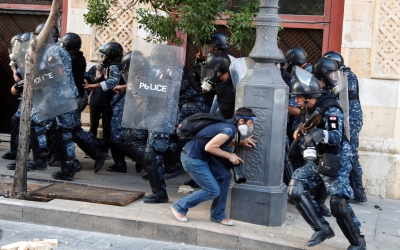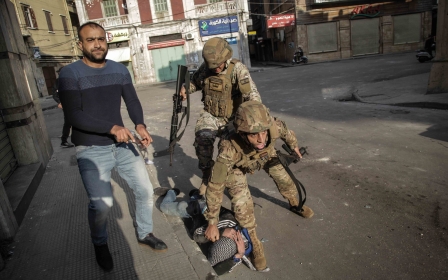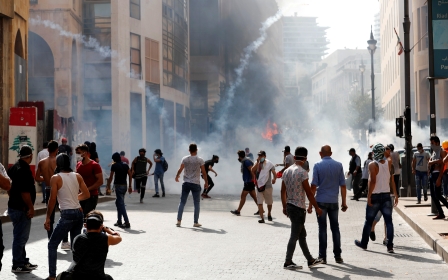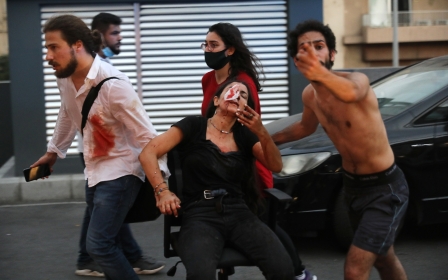'Excessive and lethal force' used against protesters in Lebanon, rights group says
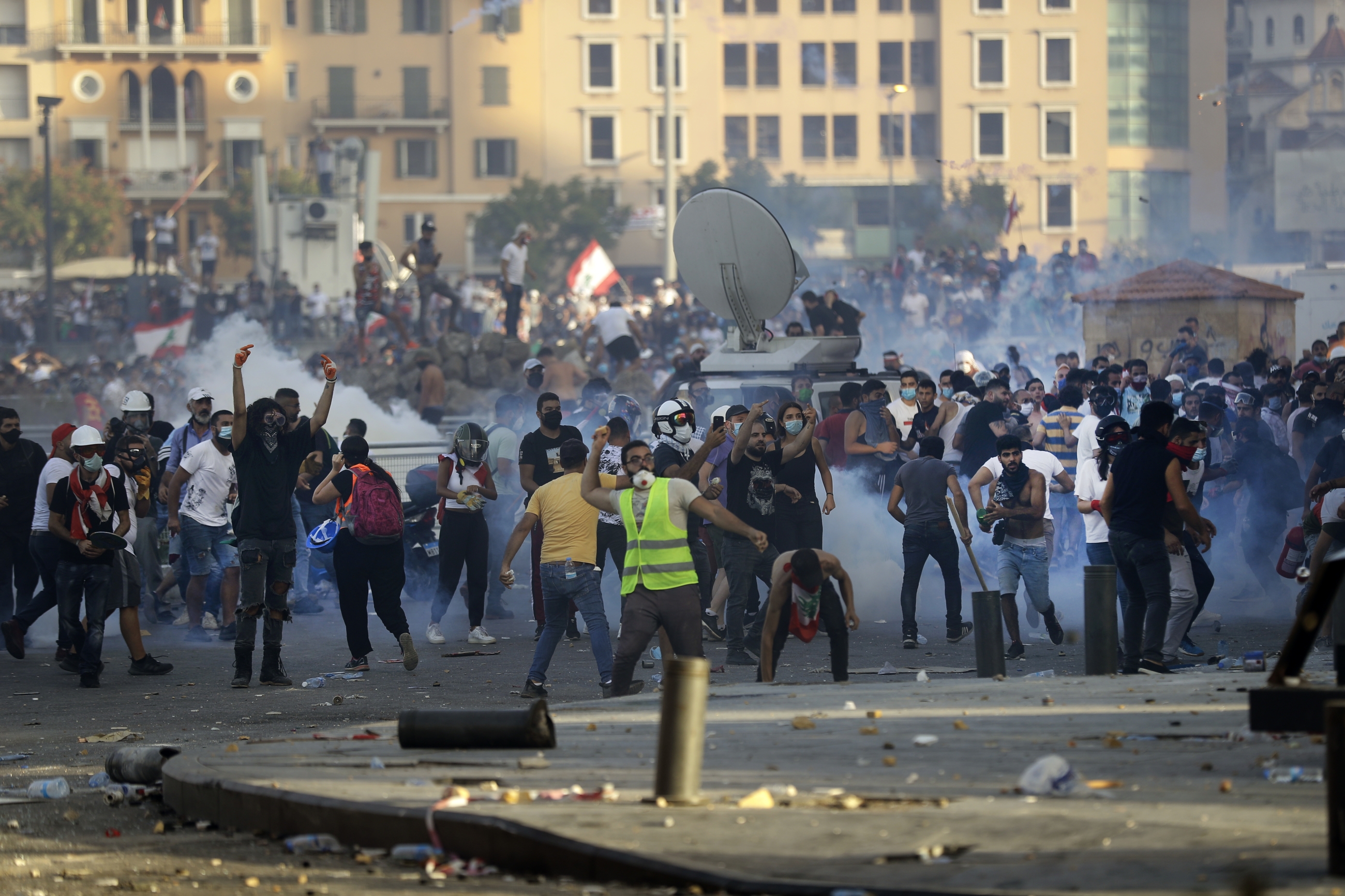
Lebanese security forces used “excessive and at times lethal force” against anti-government protesters in downtown Beirut earlier this month, causing hundreds of injuries, a new Human Rights Watch (HRW) report has found.
On 8 August, thousands of people gathered in Beirut to protest against government corruption, and to express their anger over the devastating port explosion on 4 August, which claimed over 180 lives and displaced more than 300,000 people in the Lebanese capital.
Clashes took place between protesters and security forces near Martyrs' Square in the centre of the city, while dozens of teargas canisters were fired against protesters attempting to reach the parliament building.
'Instead of lending a helping hand to fellow Beirutis … Lebanon’s security apparatus made a fist and pummelled protesters with shocking amounts of violence'
- Michael Page, Human Rights Watch
The HRW report found that security forces had fired live ammunition, metal pellets and rubber balls to disperse protests. It also said that police had deployed “excessive quantities of teargas” at both protesters and first aid stations.
The forces involved included the Parliament Police, the Internal Security Forces (ISF), the Lebanese Armed Forces (LAF) and unidentified forces in civilian clothing, the report said.
New MEE newsletter: Jerusalem Dispatch
Sign up to get the latest insights and analysis on Israel-Palestine, alongside Turkey Unpacked and other MEE newsletters
Michael Page, HRW’s deputy Middle East director, said the excessive force used against mostly peaceful protesters shows the security forces’ disregard for their own people.
“Instead of lending a helping hand to fellow Beirutis still digging themselves out of the explosion debris, Lebanon’s security apparatus made a fist and pummelled protesters with shocking amounts of violence,” Page said.
Indiscriminate attacks
Researchers at HRW interviewed 25 people in Beirut between 8 and 18 August, including doctors, journalists and lawyers, who said that they were met with metal pellets fired from shotguns and direct fire from teargas cartridges.
Despite reports detailing excessive force used against protesters, the Lebanese army reasserted in a statement on 9 August that none of the soldiers had opened fire with live ammunition against protesters, adding that citizens should abstain from spreading or being misled by rumours.
However, photographs and videos shared on social media showed uniformed army members beating protesters in order to disperse them.
The HRW report revealed that security forces were targeting people from very short distances, as many had sustained injuries to their eyes, neck and scalp.
Karl Freiha, a nurse volunteering with Secours Populaire Libanais, told HRW that security members dressed in Lebanese army uniforms fired metal pellets at him from less than 10 metres away while he was helping injured protesters.
“I was wearing our helmet, our vest, our medical backpacks… it was clear that we were medics. I felt like I couldn’t breathe anymore,” Freiha said.
Mouin Jammal, a doctor specialising in internal medicine, described how he was treating people next to a Red Cross ambulance in Martyrs’ Square when security forces fired teargas towards them.
“I was treating someone who was bleeding from his forehead, and while doing that a teargas canister fell right next to us and exploded. I couldn’t see my patient, I inhaled the teargas and fainted, so the guys had to carry me away,” he said.
X-rays and photographs obtained by HRW also showed protesters who had been wounded by pellets, some of whom had suffered punctures to their scalp and injuries to their eyes.
A few days after the Beirut port explosion, witnesses told Middle East Eye that Lebanese soldiers had attacked at least 14 journalists reporting on the blast and the angry protests, causing several injuries.
Aside from the explosion and protests, Lebanon has also been grappling with a surge of Covid-19 cases, as hospitals and medical facilities struggle to cope with an increased number of patients.
The country's economic crisis, which has seen its currency lose 80 percent of its value, has further exacerbated the situation, resulting in shortages of essential medical equipment and a rise in food prices.
Middle East Eye delivers independent and unrivalled coverage and analysis of the Middle East, North Africa and beyond. To learn more about republishing this content and the associated fees, please fill out this form. More about MEE can be found here.


